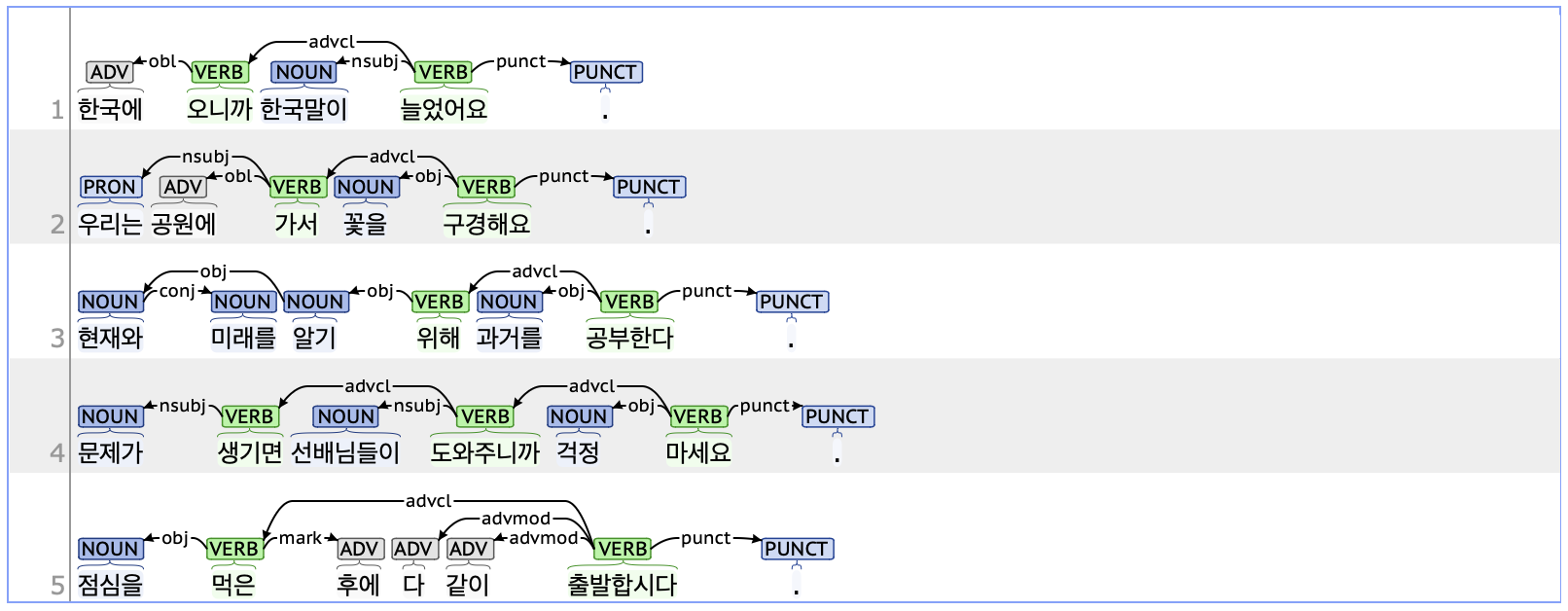advcl: Adverbial clause modifier
Definition
advcl refers to an adverbial clause that depends on a main clause to modify a predicate or sentence.
Characteristics
- The advcl tag refers to the predicate of a subordinate clause within a sentence. It provides information such as reason, condition, purpose, or concession regarding the predicate of another clause or the root of the sentence.
- The advcl tag typically includes EC (Ending_Connecting, 연결 어미) such as ‘-아/어서’, ‘-(니)까’, ‘-(으)면’, ‘-(으)러’, and ‘-(으)려고’.
- Examples:
- 한국에 오니까 한국말이 늘었어요.
- 우리는 공원에 가서 꽃을 구경해요.
- 현재와 미래를 알기 위해 과거를 공부한다.
- 문제가 생기면 선배님들이 도와주니까 걱정 마세요.
Boundary cases and clarifications
Differences with related tags
- advcl vs. conj (Conjunct):
- Both the advcl tag and the conj tag are used to analyze sentences with multiple clauses.
- The advcl tag depends on the predicate of another clause or the root of the sentence. In contrast, the conj tag represents a predicate that is on equal footing with the preceding clause or root.
- advcl: 부산까지 기차로 가면 비행기보다 싸다(root).
- conj: 부산까지 기차로 가고(root) 거기에서 비행기로 갈아탄다.
Special cases
- The syntactic structure of advcl + mark (Marker):
- The mark tag is a function word that makes one clause subordinate to another, usually following the advcl.
- In the advcl + mark structure, the advcl typically includes an ETM (Ending_Determinitive, 관형형 전성 어미). Morphologically, the verb or adjective in the advcl modifies the noun in the mark. Syntactically, the mark tag helps the advcl subordinate to another clause.
- 점심을 먹은(advcl) 후에(mark) 다 같이 출발합시다.
- 저는 어렸을(advcl) 때부터(mark) 피아니스트가 되고 싶었습니다.
Examples
